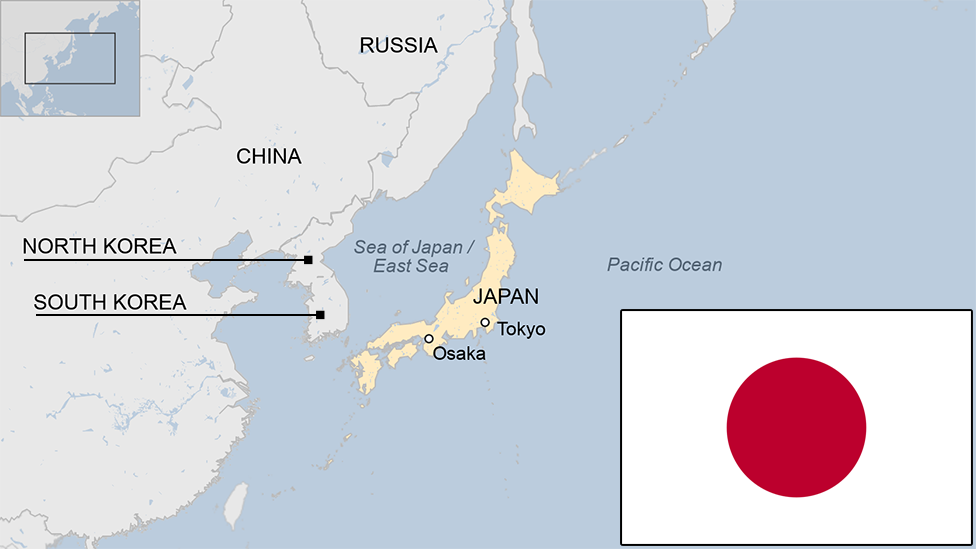Japanese Emperor Naruhito: The man taking Japan into a new era
- Published
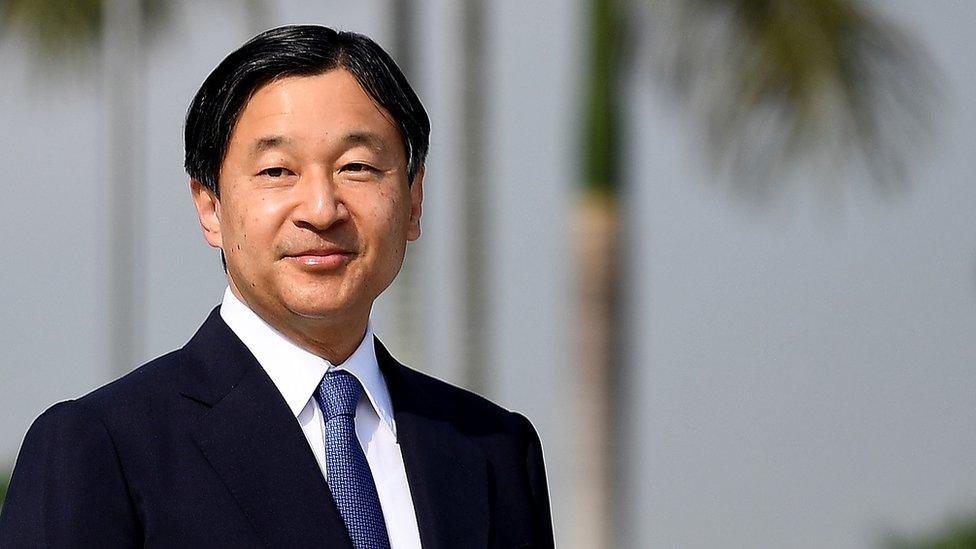
Emperor Naruhito’s coronation will usher in Japan’s Reiwa era
Japan officially began a new era on 1 May when Crown Prince Naruhito ascended the Chrysanthemum Throne as the new emperor.
The day before, his father Emperor Akihito became the first Japanese emperor in more than 200 years to abdicate, bringing the Heisei imperial era to an end.
Naruhito, 59, differs in many ways from his more tradition-bound predecessors, and has consistently challenged expectations by prioritising his family and academic life.
In his first speech as emperor, he said he felt the solemn weight of his position, but vowed to be a symbol of unity for the nation.
An academic at heart
Unlike his father, Emperor Naruhito had the opportunity to pursue his own education and dreams when he was young.
After graduating with a degree in history from Tokyo's prestigious Gakushuin University, he studied from 1983 to 1985 at Oxford University's Merton College.
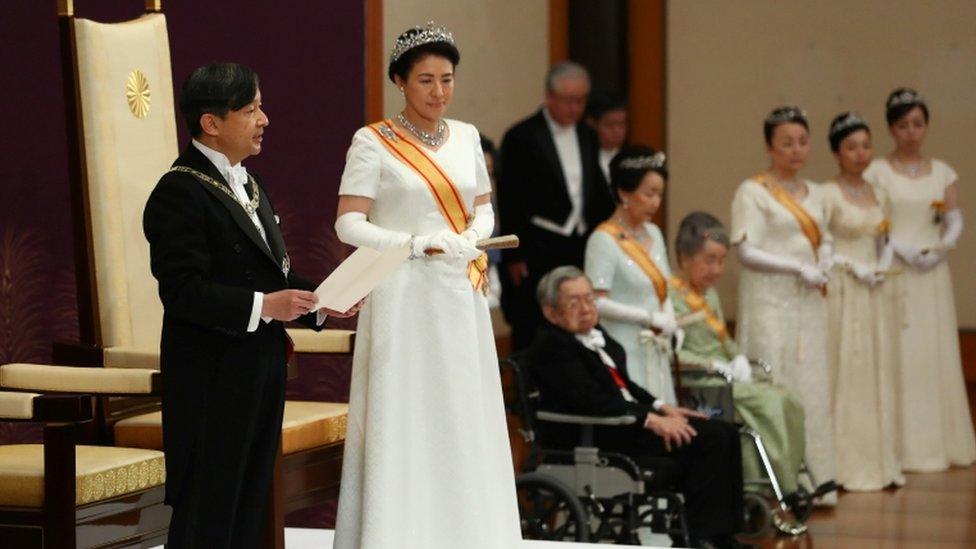
The emperor spoke of world peace in his first speech in his new role
His chosen area of study was the history of transport on the River Thames, highlighting an interest in waterways that continued with doctoral research at Gakushuin.
His Oxford years left a strong mark on the young Prince Naruhito. In his 1993 memoir, "The Thames and I", he described the period as the happiest time of his life.
After his father ascended the throne in 1989 and he became crown prince, Naruhito maintained his passion for academia and global water issues.
He was honorary president of the United Nations' Advisory Board on Water and Sanitation from 2007 to 2015.
A devoted family man
Prince Naruhito lived with his family until the age of 30, a departure from imperial tradition requiring future emperors to be raised by their subjects.
The practice aimed to instil consideration for people in place of personal attachments, but by the time the crown prince was born family life was considered equally important.
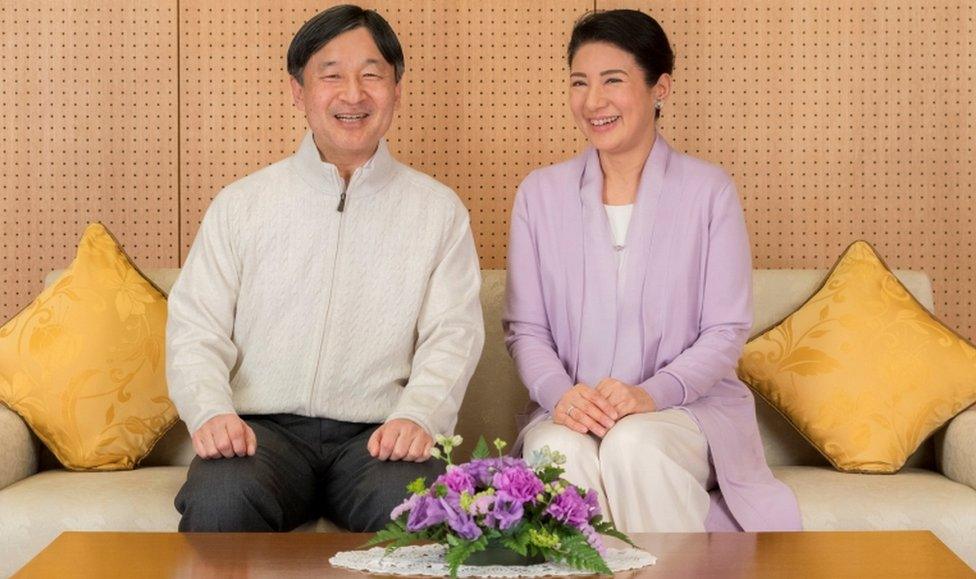
Emperor Naruhito and Empress Masako are reported to have met at a tea party
The importance of family to Crown Prince Naruhito would later come to the fore as his wife struggled with a stress-related "adjustment disorder".
Crown Princess Masako, a former diplomat, was diagnosed with the disorder in 2004 due to the strain of imperial life and the pressure to produce a son.
The prince took on an active part in raising their child, Princess Aiko, and staunchly defended his wife from criticism that she was neglecting public duties.
Princess Aiko has herself been the subject of a wider debate on imperial succession. Under the Imperial Household Law of 1947, only men can ascend to the throne.

In 2004, then-Prime Minister Junichiro Koizumi proposed a revision to allow for an empress, potentially making Princess Aiko a future ruler.
These plans stalled after the birth of her cousin Prince Hisahito in 2006, however, with the presence of a male heir negating the previous urgency.
Start of a new imperial era
Midnight on 1 May marked both the change of emperor and the dawn of a new era in the imperial calendar.
The name of the new imperial era, meaning "beautiful harmony", was taken from Japan's oldest poetry anthology Manyoshu.
It's a departure from the tradition of deriving imperial era names from Chinese classics, a practice that lasted more than 1,300 years.
More than 70% of Japanese citizens approve of the name, according to polls, while the reaction to the incoming emperor himself is largely favourable.
Reiwa: Naming a new era in Japan
Despite the public's approval, there remain questions about the role Emperor Naruhito will play in a changing Japan.
The emperor's role is largely ceremonial, focusing on public engagement with citizens and meeting foreign dignitaries.
But Naruhito, the first emperor born after World War Two, may be expected to push for change.
"The world is changing and we are wondering how he will adjust his position and responsibilities to this new landscape," an editorial in leading business daily Nikkei said.
In his accession speech, Emperor Naruhito recognised the heavy burden his father had carried in the role, and said he would "bear in mind the path trodden by past emperors".
"I sincerely hope for the happiness of the people and further progress of the country, and for world peace," he said.
The law barring Princess Aiko from becoming empress is of particular relevance.
All eyes will be on whether the new emperor pushes for a revision to the law, but he has thus far avoided the subject of change.
Reporting by Shreyas Reddy.BBC Monitoring, external reports and analyses news from TV, radio, web and print media around the world. You can follow BBC Monitoring on Twitter, external and Facebook, external.
- Published1 May 2019
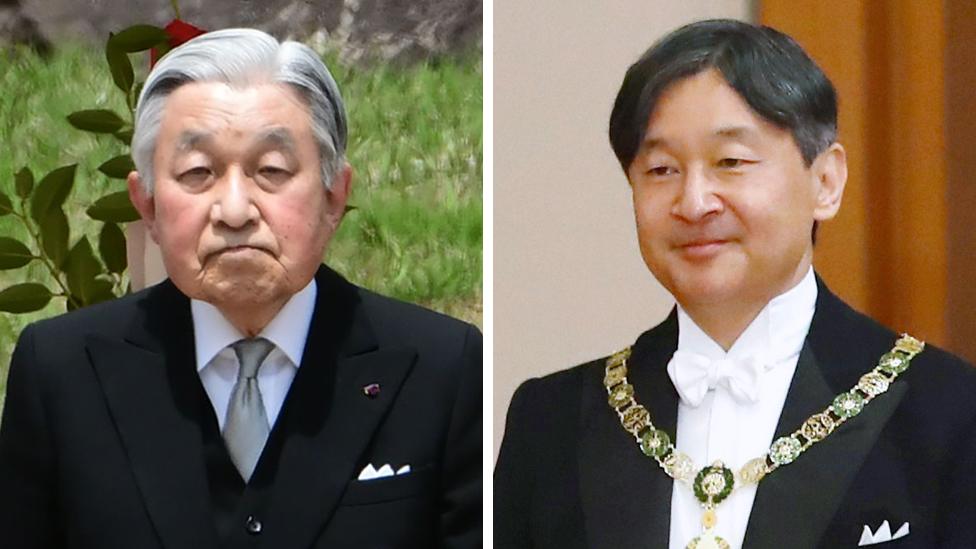
- Published1 May 2019
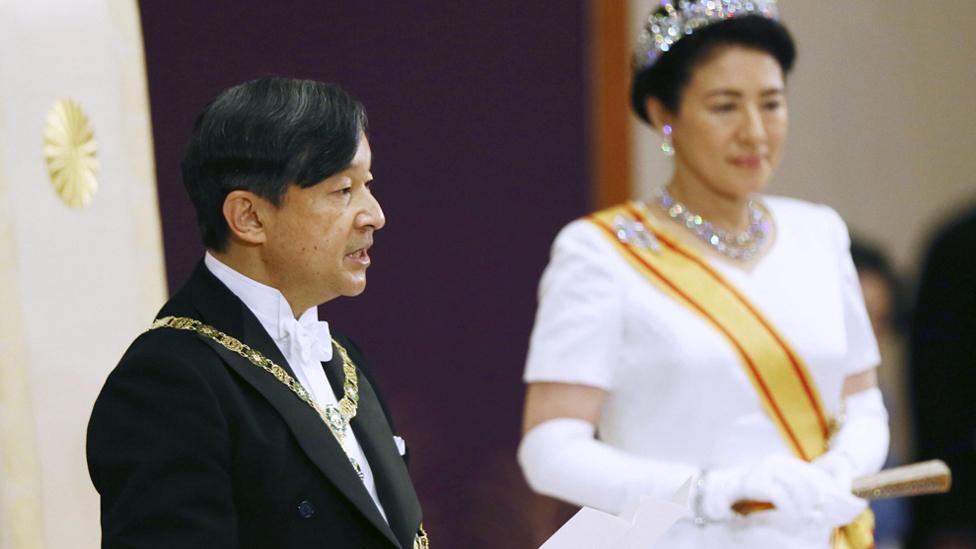
- Published30 April 2019
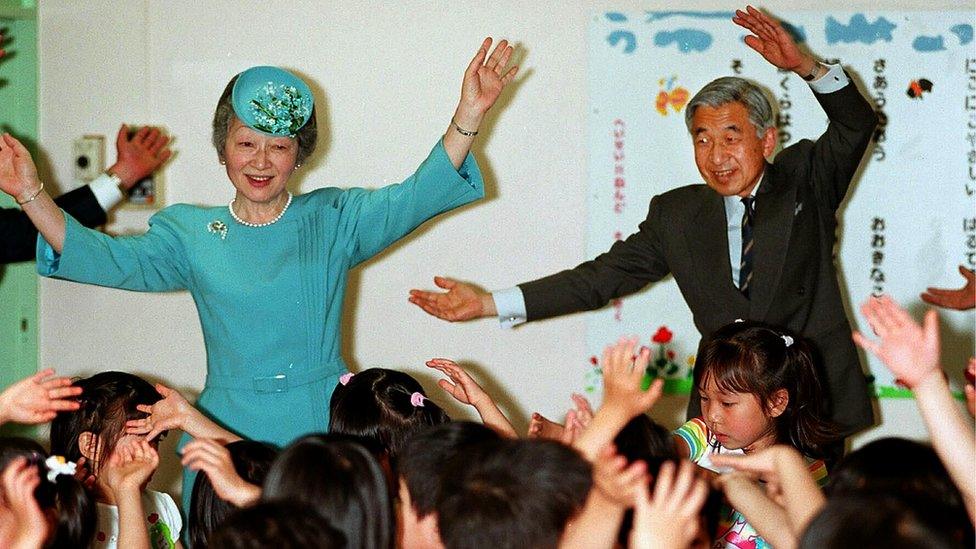
- Published27 April 2019
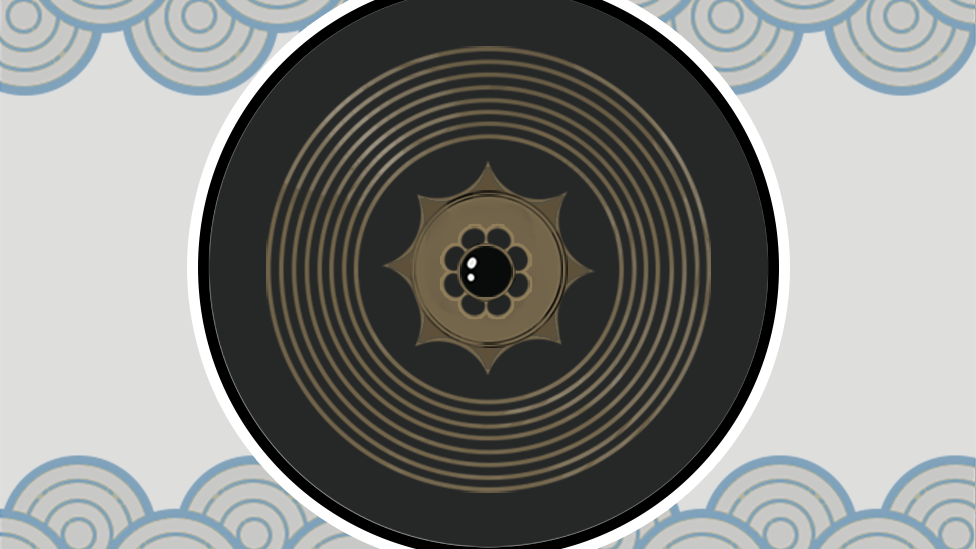
- Published30 March 2019
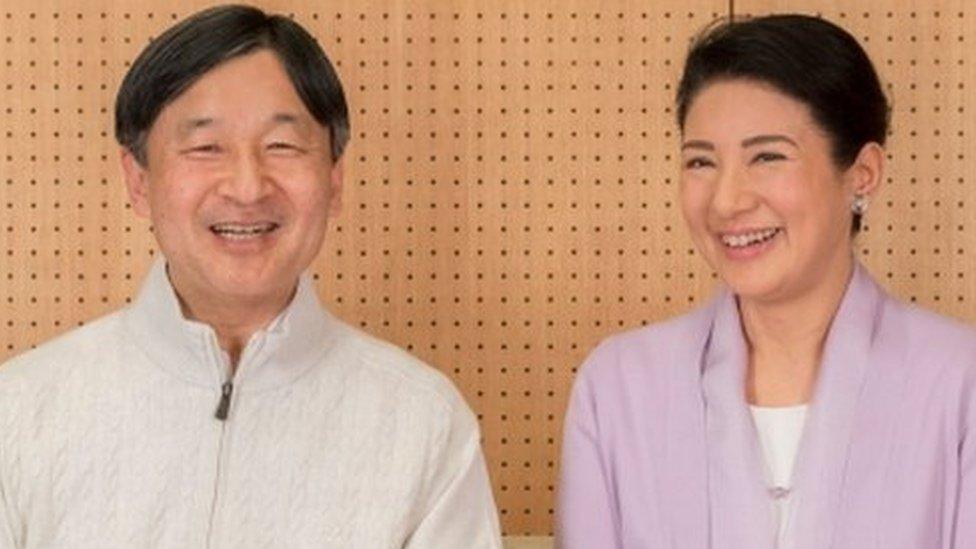
- Published9 December 2018
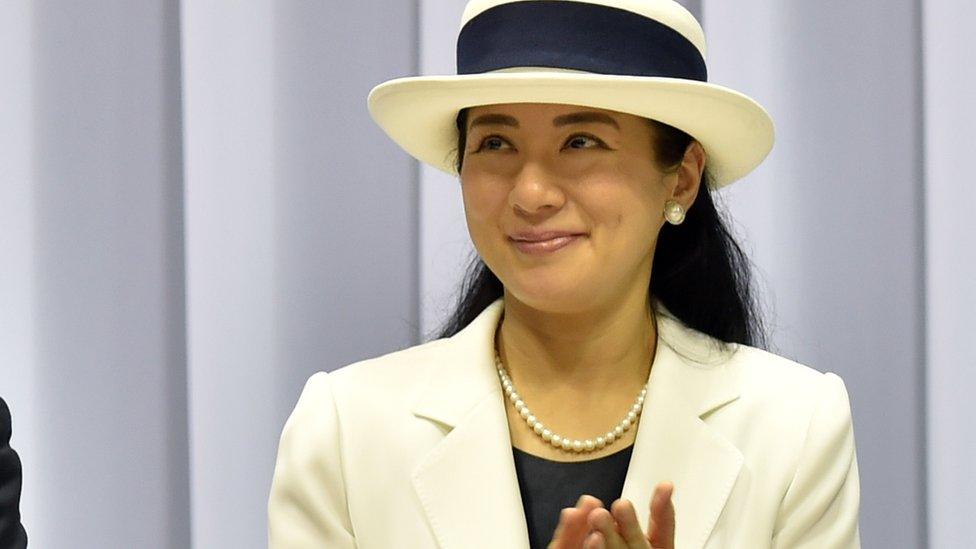
- Published23 December 2018
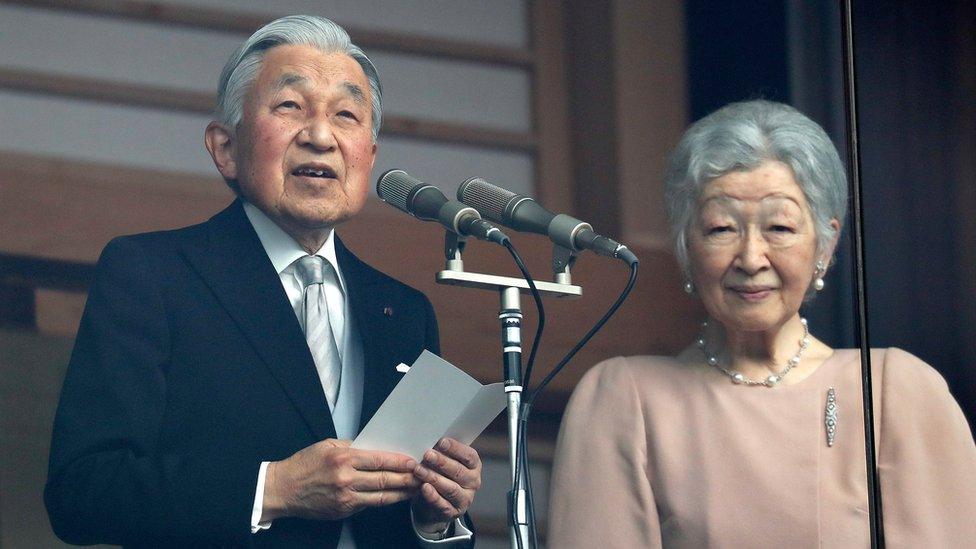
- Published29 October 2024
